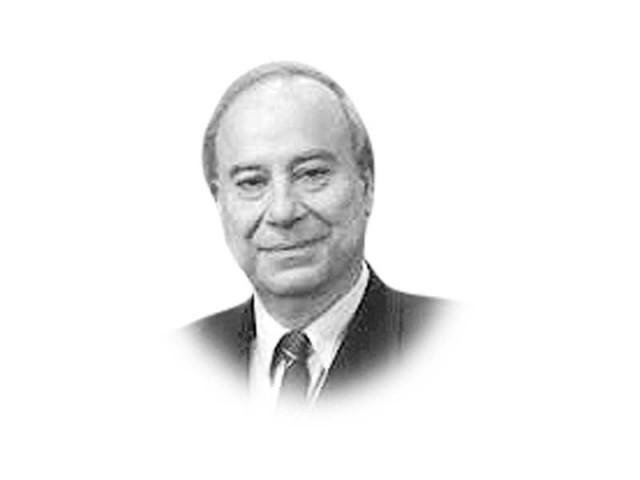Omran Daqneesh and Aylan Kurdi
In between the death of young Aylan and wounding of Omran lay one year of immense human suffering on a global scale

The writer is Ibn Khaldun Chair of Islamic Studies at the American University, Washington, DC. His latest film, Journey Into Europe, has just been released and he is completing the parallel book for Brookings Press

It was nearly a year later, in August 2016, that the world was once again confronted with the unnerving image from Syria of an innocent child who faced the consequences of the senseless violence. The eerie video footage and still shot of five-year-old Omran Daqneesh’s blank stare and lack of tears haunted the world as it watched the young boy covered in blood, bruises, and dust, injured in a regime air strike in Aleppo. What was unsettling was not only the look in his eyes which appeared stone dead and his face that looked like a ghost but his reaction when he lifted up his left hand and touched his bloodied face; there was no cry of pain or horror, no reaction. He was beyond shock and sorrow. Omran was a picture of utter helplessness.
Together, these images, in one the little boy appeared peacefully asleep, in the other catatonic, have shown the world the unimaginable choices these families are facing: if they stay in their violence- ridden home countries they may find themselves victims of targeted attacks, but their efforts to escape to safety may also result in tragic deaths. No one caught in the cross-fires of this senseless violence, not even innocent children, are safe from unimaginable calamities.
In between the death of young Aylan and the wounding of Omran lay one year of immense human suffering on a global scale in which several things were established. In the West, people simply had given up caring any more, even if the suffering involved children; stories of child prostitution and rape, child slavery and human trafficking were widespread. The hardened attitude was reflected in one instance in the case of the Berlin general managers in charge of hostels for refugees who were circulating gruesome plans for “guillotines for children” or “kinderguillotine” (Oltermann, Philip, “German Asylum Seeker Hostels Lose Contracts after Execution Jokes, The Guardian, August 16, 2016). By ignoring the plight of the genuine asylum seekers, Europeans had even compromised the very ideas that lay at the foundations of their modern developed societies — ideas of human dignity and universal human rights. In the Muslim world, the rulers and leaders continued their lives as if the two boys, and hundreds of thousands like them, did not exist. With a few honourable exceptions, they were utterly devoid of compassion, imagination or wisdom. They were also exposed as lacking in legitimacy to represent their people and their culture.
Europe and the Muslim world, two civilisations thus meet darkly and not understanding each other grapple with the best means to maintain balance in their own cultural context. As the relationship is an asymmetrical one, between a reluctant benefactor and a disgruntled recipient of favours, it is ripe with the potential for misunderstandings and disasters. Europeans are finding the balance between their most cherished values of order and the rule of law with that of their humanitarian character repeatedly compromised. Every negative action of the Muslims tilts the balance away from the humanitarian to the security aspect of European identity. Every reaction of Europe in terms of increasingly harsh security measures causes anger, grief and humiliation in the Muslim community.
Both blame each other for the plight of the refugees. For Europeans, and an opinion no longer restricted to the right-wing groups, the refugees are an unwelcome, ill-disciplined and ungrateful lot. For the refugees, Europeans who boast of their humanity and compassion have neither and are little more than former colonialists and imperialists who exploited their lands. For Europeans, the dangers of characterising all refugees as law-breakers and equating them generally to the larger immigrant community and beyond as representing the wider Muslim world are real. It has created stereotypes and prejudices. For the refugees, it has further embittered them and engenders the confusion and anger that often leads to violence.
Just as the Western leaders have sidelined their notions of universal human rights, Muslim rulers have abandoned the Muslim concept of the world community, the ummah. Non-Muslim and Muslim, neither seemed to care enough to act to stop the slaughter of the civilian population taking place in Syria which was keeping the refugee crisis alive.
Omran and Aylan were metaphors for the conscience of the world: one was half dead when he was found and the other fully dead.
Published in The Express Tribune, September 16th, 2016.
Like Opinion & Editorial on Facebook, follow @ETOpEd on Twitter to receive all updates on all our daily pieces.
















COMMENTS
Comments are moderated and generally will be posted if they are on-topic and not abusive.
For more information, please see our Comments FAQ